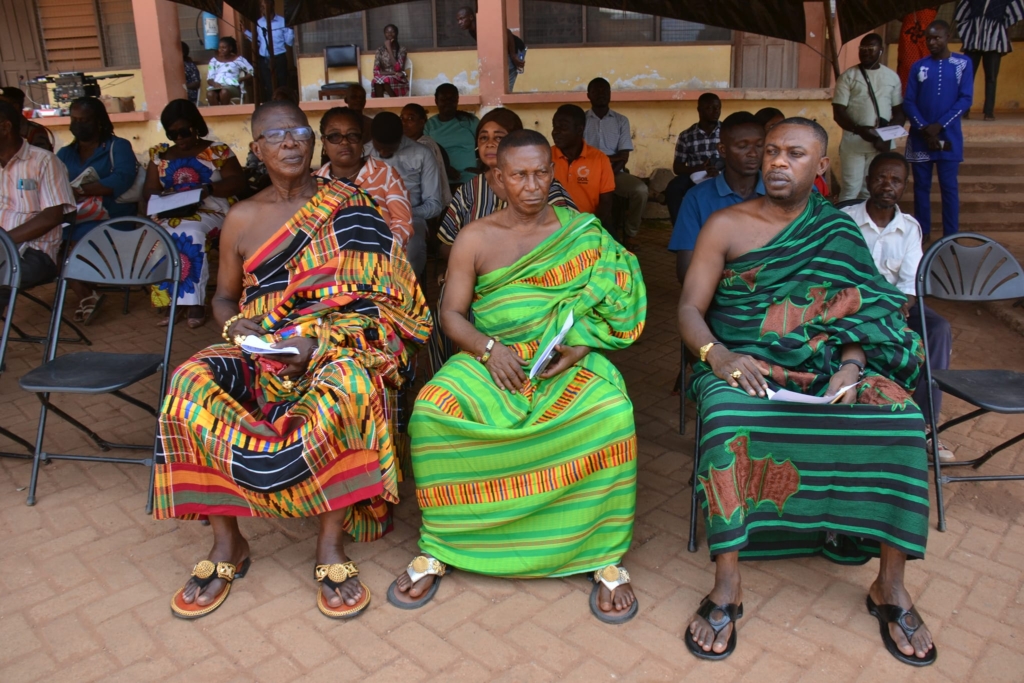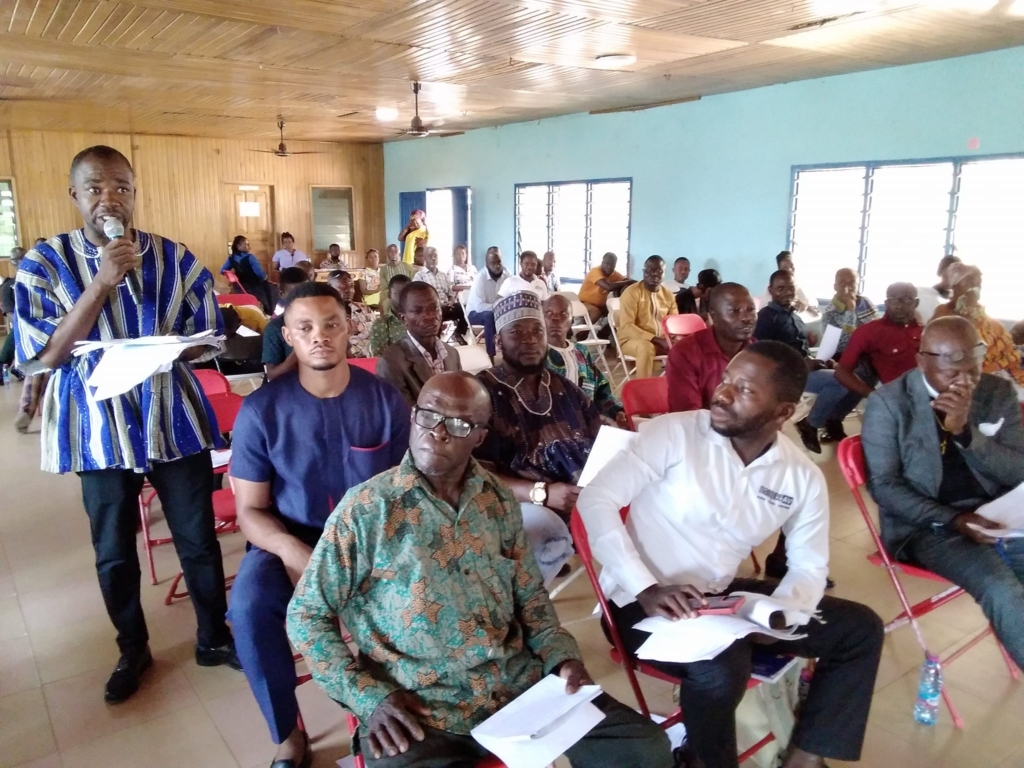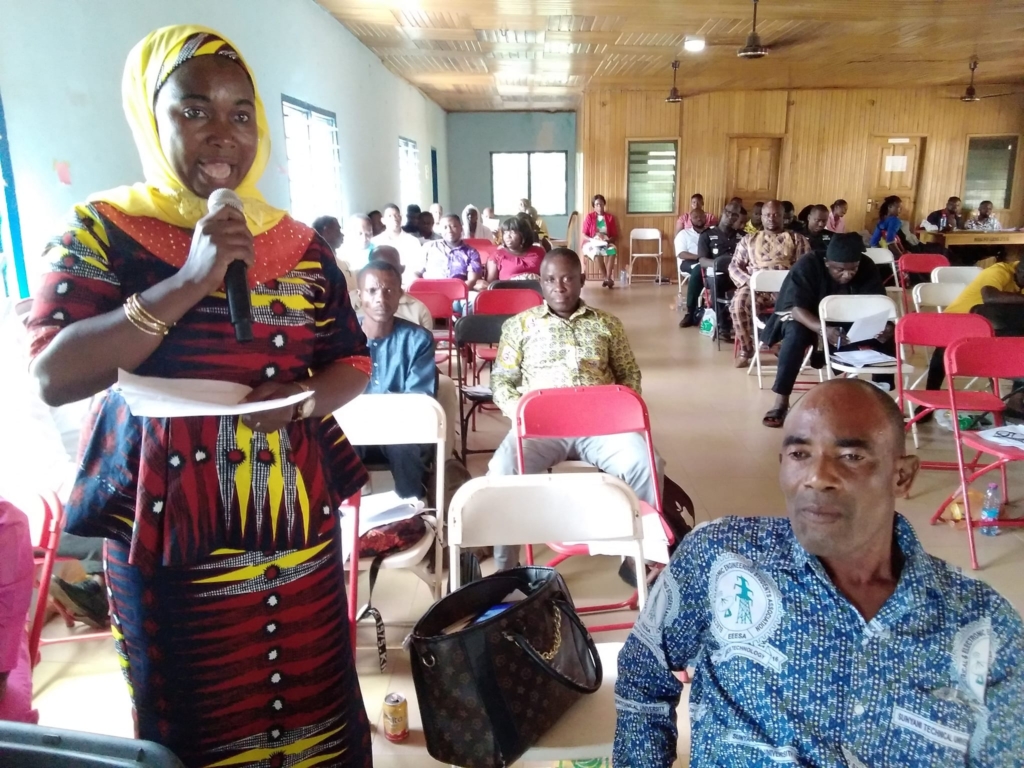
Audio By Carbonatix
A Governance and Entrepreneurship consultant, Victor Fosu-Boamah, says the President's power to appoint 30 per cent of district assembly members should be taken away and given to the National House of Chiefs.
According to him, successive Presidents have abused the power given to them to appoint assembly members.
He said this needs to be changed if the country is determined to achieve an effective and efficient decentralisation system.

Mr Fosu-Boamah suggested these in an interaction with journalists at a public forum on Ghana's decentralised system in Sunyani.
A consortium of civil society organisations operating within the Bono region organised the forum.

He stated that the power to appoint 30 per cent of assembly members was conferred on the President by the 1992 constitution.
However, political parties in power have used that to reward their members by appointing people who are incompetent to the assemblies.
He cited instances, especially during the reign of the New Patriotic Party (NPP) under President J.A. Kuffuor when such government appointees to the assemblies were sacked or removed en bloc to pave the way for the President to appoint a new set of people only to vote to approve his nominees for the position of District Chief Executive (DCE).

He added that after the approval of the President’s nominee for DCE, the sacked DCEs were re-appointed by the President, which was not helpful to the country's decentralisation process.
Mr Fosu-Boamah recommended that the roles of the Regional Co-ordinating Councils (RCCs), especially in resource allocation, should be revised.
He noted that the responsibilities assigned to and undertaken by the RCCs far outweighed the resources allocated for that purpose.
He said that made it extremely difficult for the RCCs to discharge these assignments, a situation that portrays RCCs as ineffective in performing their functions.
He stated that the passage of the Legislative Instrument (LI) 1961 is significant in the country's local government system.
He added that if the decentralisation system is implemented fully, it will create employment to absorb more unemployed graduates at the district level, which could also bring about a remarkable improvement in the living conditions of the people.
Latest Stories
-
Adom FM’s ‘Strictly Highlife’ lights up La Palm with rhythm and nostalgia in unforgettable experience
2 hours -
OMCs slash fuel prices as cedi gains
3 hours -
Around 40 dead in Swiss ski resort bar fire, police say
4 hours -
AFCON 2025: Aubameyang and Nsue make history among oldest goalscorers
5 hours -
Ghana is rising again – Mahama declares
6 hours -
Firefighters subdue blaze at Accra’s Tudu, officials warn of busy fire season ahead
6 hours -
Luv FM’s Family Party In The Park ends in grand style at Rattray park
7 hours -
Mahama targets digital schools, universal healthcare, and food self-sufficiency in 2026
7 hours -
Ghana’s global image boosted by our world-acclaimed reset agenda – Mahama
7 hours -
Full text: Mahama’s New Year message to the nation
7 hours -
The foundation is laid; now we accelerate and expand in 2026 – Mahama
7 hours -
There is no NPP, CPP nor NDC Ghana, only one Ghana – Mahama
7 hours -
Eduwatch praises education financing gains but warns delays, teacher gaps could derail reforms
8 hours -
Kusaal Wikimedians take local language online in 14-day digital campaign
8 hours -
Stop interfering in each other’s roles – Bole-Bamboi MP appeals to traditional rulers for peace
9 hours

